Ukraine’s Games of Sovereignty: Russia vs US Exceptionalism
Sovereignty is defined by the power to dictate exceptions, or as the German jurist Carl Schmitt suggested, the power of the exception. Without this, one could never be an overlord of oneself, in a political or any other meaningful way. What is unfolding in Ukraine at this writing is a battle of sovereign will. Most conspicuously, this will is not Ukrainian.
There are no clear-cut revolutions. The idea that democracy is somehow dictated by the deliberations of the market place, the Maidan in the case of Ukraine, is deceptive. Ancient Athens did have, in its small sense, a functioning demos through open assembly, but complex states keen to keep various factions in check make poor examples of it. Those against Viktor Yanukovych’s government had good reason to be disgruntled. They saw their government lurch between policies, and then, on assessing the merits of the European Union association agreement, rejected it. The Ukrainian president, in his own words, had been “tricked.”
Yanukovych had good reason to feel pressured. The balance sheet was not considered. Pro-Russian and economic interests would have been infuriated, had the agreement of association gone through. The Kremlin was very keen to remind its detractors what the score was. The EU’s expansion into eastern Europe after the fall of communism raised problems for its members and those of the former Communist bloc. For one, the policy seemed to be moving inexorably towards countries within the Russian orbit of interest. The power of the purse had replaced the power of the bullet. Nor did the EU want to block all engagement with Ukraine and countries in the Caucasus. The European Neighborhood Policy was thereby born, intending to create a “ring of friends” with access to its market. Instead, it begot a “ring of fire.”
The events in Kiev have prompted those in the diplomatic community, including former Austrian diplomat Stefan Lehne, to argue for an entire revision of the neighborhood policy. It has aggravated a dysfunctional disposition, as it does not “work for countries that do not want close association with the EU, and the absence of the carrot of future membership frustrates those who do.” It is fundamentally “eurocentric in conception and often ignores the roles outside actors play in the EU’s neighbourhood.”
The massing of Russian forces, the seizure of two airports in Crimea by military contractors working for Moscow, continues that old precedent of intervention by protection. It is a version of sovereignty by other means, even if it comes at the expense of Kiev. On the surface, it seems like a crude affirmation of realpolitik. The Ukrainian embassy to the EU circulated a two-page note to EU diplomats on February 28, 2014 citing seven “illegal military activities of the Russian Federation in the Autonomous Republic of Crimea, Ukraine.”
But Russia’s Vladimir Putin is frustratingly wily for his opponents. For one, this protective principle is not to be confused with humanitarian intervention, an inchoate doctrine that admits, disingenuously, to no self-interest other than those of the “innocent” civilians. Rather, it is a principle based on intervention for reasons of nationality, otherwise termed the “doctrine of diplomatic protection.” Like it or not, Putin is playing by the book all strong powers have written over the centuries.
The principle, one that has not been discussed seriously in any of the mainstream presses, deserves mention. It has been susceptible to abuse given the sheer variety of measures a state might undertake to protect its nationals in another state. “The doctrine of diplomatic protection under which the state asserts its right to make claims on behalf of nationals injured abroad,” argues Elizabeth Prochaska, “is a promising remedy for the human rights abuse of aliens.”
Various international law bodies, including the International Law Commission have considered it, be it in the form of a Convention on Diplomatic Protection, and more specific codifications of a state’s guarantee of the right to an individual’s diplomatic protection. Article 19 suggests that states exercise diplomatic protection in cases when “significant injury” has occurred. These imprecise terms would provide lawyers a feast of speculation.
The designated big bad wolf and his sponsor are Yanukovych and Putin. Many of the European presses, and certainly the British and American press, have marshalled words and columns against them. They are deemed to be the authoritarians in a battle against democracy. They do not read the laws. Yet it is easy to forget that the man who is now besieged in his own country, having fled Kiev, was democratically and constitutionally elected. Put another way, his election was an assertion of sovereignty in itself, only for that result to be tipped over when matters got hot. The parliamentary deliberations in Kiev are effectively taking place in defiance of that understanding, operating in a constitutional vacuum.
Unfortunately, recent years of revolutionary turmoil have demonstrated that democracy is only a good thing if you can control the way democracy is exercised. As former US Secretary of State Henry Kissinger explained in the context of overthrowing Salvador Allende’s socialist government in Chile, “I don’t see why we need to stand by and watch a country go communist due to the irresponsibility of its people. The issues are much too important for the Chilean voters to be left to decide for themselves.” Instead of the ballot, Chile got a blood-stained military junta backed by Washington.
US foreign policy has continued this trend, deploying that convenient abstraction of the “people” when it comes to deposing a leader who just so happened to have been put there by the ballot. Washington proved an enthusiastic supporter of last year’s coup against the elected Mohamed Morsi in Egypt. Officials in the State Department tiptoed around suggestions it was a seizure of power by the military in violation of constitutional principles, but the stance was clear enough.
The lack of interest in Ukraine’s sovereignty was affirmed in its sheer nakedness in the now infamous exchange between the European Head of the Department in the State Department, Victoria Nuland, and the US ambassador to Kiev, Geoffrey Pyatt. In Nuland’s view, “Klitsch” (opposition leader Vitali Klitschko) should not join the government. “I do not think this is a good idea.” Leonid Slutsky, chairman of the Duma Committee on the Affairs of the Commonwealth of Independent States (CIS), Euro-integration and the Affairs of Compatriots, pounced upon the observations. “This scandal finally undermines America’s reputation as an advocate of democracy.” Other media outlets preferred to focus on Nuland’s bad language. What she had actually revealed was a policy of open interference.
Other countries in the West have also done their bit to shred Ukrainian sovereignty. Foreign ministers from three countries – Germany’s Frank-Walter Steinmeier, France’s Laurent Fabius, and Poland’s Radoslaw Sikorski, were in Kiev during the shootings. The otherwise conservative Economist could hazard that their presence “may have facilitated a controlled collapse of Mr. Yanukovych’s rule.”
If Western powers had not anticipated Putin’s movement of his military pieces into play, then their political illiteracy may well have been affirmed. Politico, for example, termed it “a crisis that no one anticipated,” claiming that the Russian President had proven himself to be “reckless.” US intelligence sources, showing a distinct lack of intelligence, predicted that the Russians, despite amassing 150,000 troops, would not move into Ukraine. Besides, Putin was still glowing in the post-Sochi light of success. Some 24 hours after the flawed intelligence assessment, Putin’s forces were finding themselves in Crimea, with the newly-installed Crimean prime minister appealing for Russian help.
The events of the recent week show how traditional rivalries are being reasserted. Alexis de Tocqueville, writing in 1835, saw how the Russians and Anglo-Americans “seemed called by some secret design of Providence one day to hold in its hands the destinies of half the world.” In the dying days of the Third Reich, Adolf Hitler would claim that the US and Soviet Russia would be compelled “to a trial of strength, either military or in the fields of economics and ideology.” Pity those caught up in this grand design.
Editor’s Note: Photographs three, five, six seven, eight and twelve from Pan-African News Wire. Photographs one and four by Tardov, and photograph nine from the Library of Congress.
Related Articles


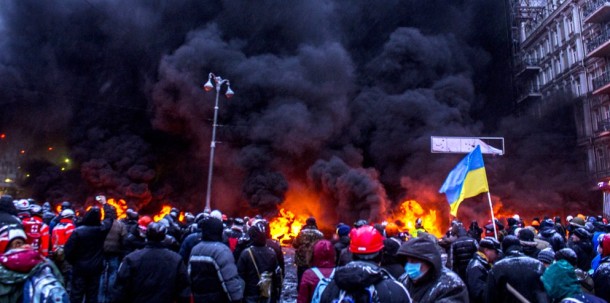
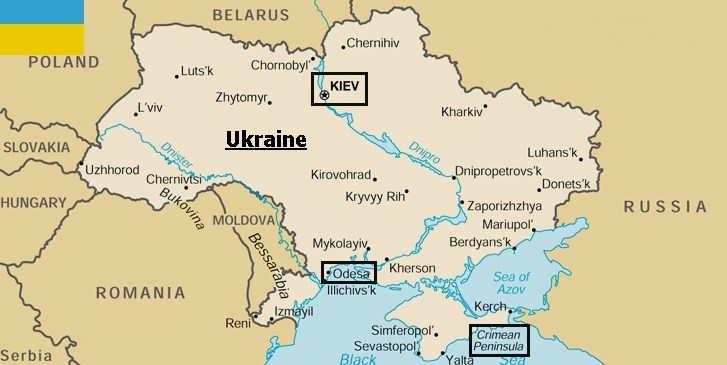
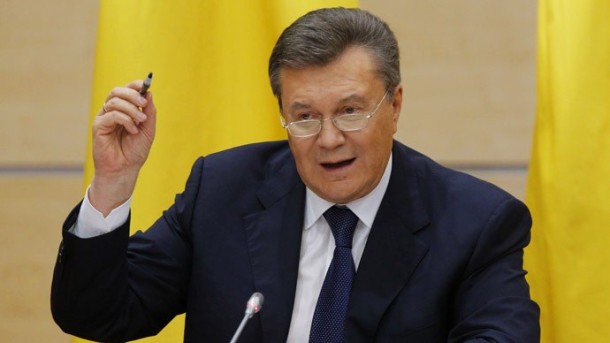
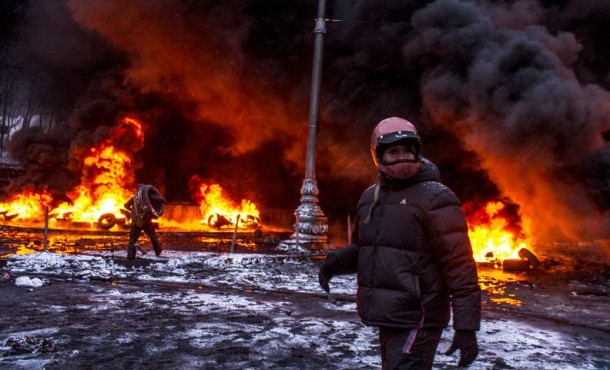
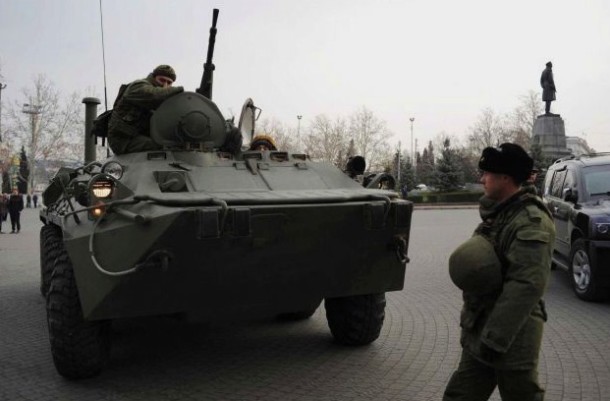
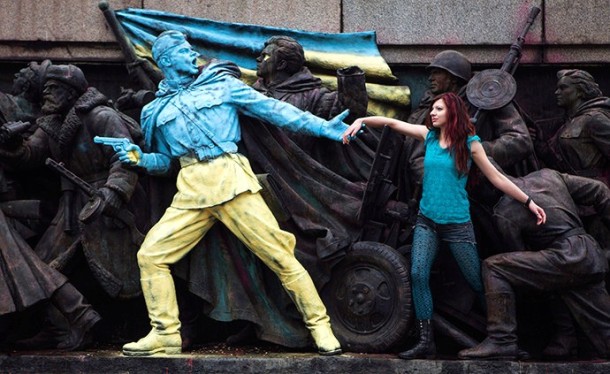
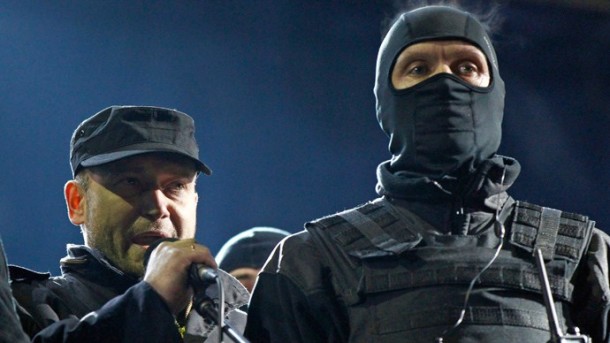
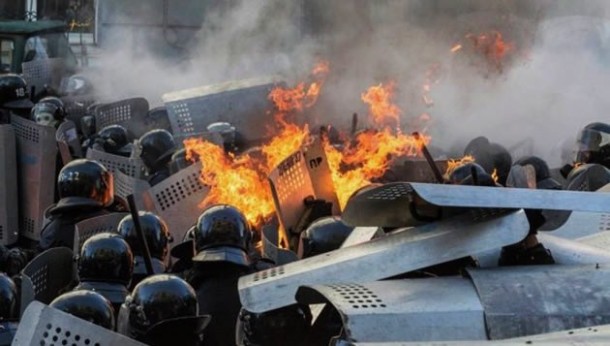
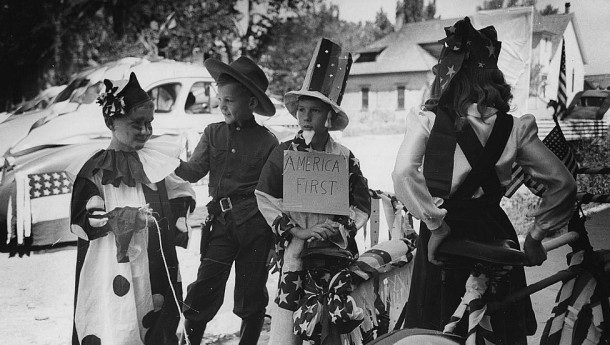
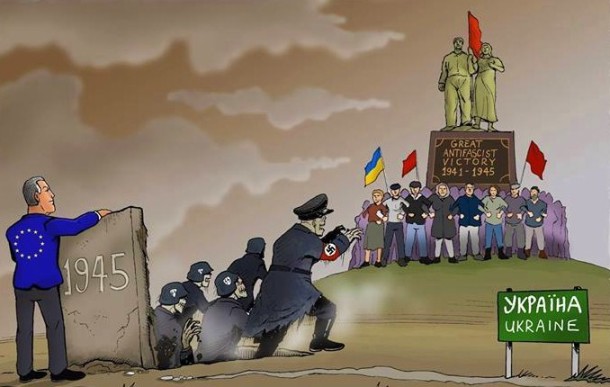
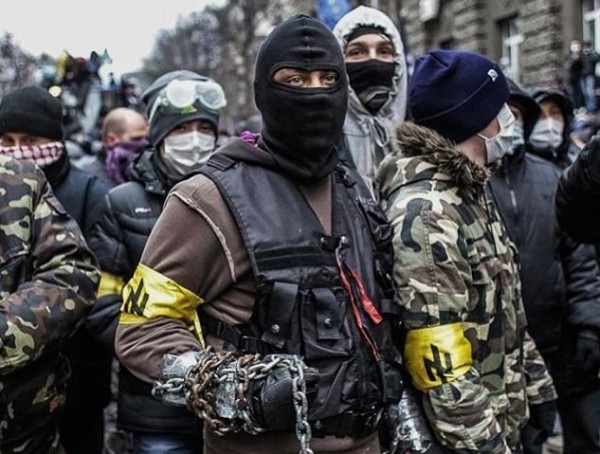
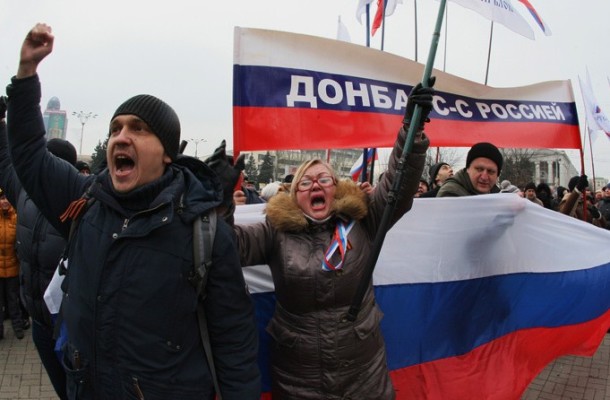











You must be logged in to post a comment Login